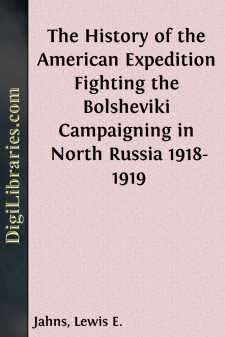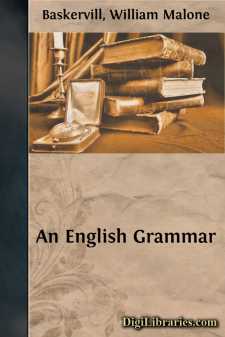Categories
- Antiques & Collectibles 13
- Architecture 36
- Art 48
- Bibles 22
- Biography & Autobiography 813
- Body, Mind & Spirit 142
- Business & Economics 28
- Children's Books 17
- Children's Fiction 14
- Computers 4
- Cooking 94
- Crafts & Hobbies 4
- Drama 346
- Education 46
- Family & Relationships 57
- Fiction 11829
- Games 19
- Gardening 17
- Health & Fitness 34
- History 1377
- House & Home 1
- Humor 147
- Juvenile Fiction 1873
- Juvenile Nonfiction 202
- Language Arts & Disciplines 88
- Law 16
- Literary Collections 686
- Literary Criticism 179
- Mathematics 13
- Medical 41
- Music 40
- Nature 179
- Non-Classifiable 1768
- Performing Arts 7
- Periodicals 1453
- Philosophy 64
- Photography 2
- Poetry 896
- Political Science 203
- Psychology 42
- Reference 154
- Religion 513
- Science 126
- Self-Help 84
- Social Science 81
- Sports & Recreation 34
- Study Aids 3
- Technology & Engineering 59
- Transportation 23
- Travel 463
- True Crime 29
The History of the American Expedition Fighting the Bolsheviki Campaigning in North Russia 1918-1919
by: Lewis E. Jahns
Categories:
Description:
Excerpt
[Transcriber's Notes]
Here are the definitions of several unfamiliar (to me) words.
batmen
Soldier assigned to an officer as a servant.
batushka
Village priest.
drosky
Cart
felcher
Second-rate medical student or anyone with some medical knowledge.
hors de combat
Out of the fight; disabled; not able to fight.
junker
Aristocratic Prussian landholder devoted to militarism and
authoritarianism, providing the German military forces with many of
its officers.
knout
Whip with a lash of leather thongs, formerly used in Russia for
flogging criminals. To flog with the knout.
mashie nib
Mashie-Niblick (mah-she nib-lik)--Wood shafted golf club with about
the same loft and length as today's seven iron.
poilus
French common soldier, especially in World War I.
verst
Russian measure of distance; 3500 feet, 0.6629 mile, 1.067 km.
viand
Choice or delicate food.
volplane
Glide in an airplane without power.
I (Don Kostuch) am the son of John Kostuch, then from Detroit, who was
a Mechanic in the 339th, Company M. He saw some action in the fall of
1918 but due to flu, exposure and a dislocated joint, was evacuated to
England on December 1, 1918 before the gruesome winter described in the
book. {sources: "M" Company 339th records and Golden C. Bahr papers,
1918-1919.}
Fort Snelling, Minnesota
The following text is copied from a newspaper clipping in the book. The
Declaration of War is on one side and an incomplete local news item is
on the other side.
From The Indianapolis News, Monday, April 9, 1917
U. S. Declaration of War
Sixty-fifth Congress of the United States of America
At the First Session
Begun and held at the City of Washington on Monday, the second day of
April, one thousand nine hundred and seventeen
JOINT RESOLUTION
Declaring that a state of war exists between the Imperial German
Government and the Government of the people of the United States and
making provision to the same.
Whereas the Imperial German Government has committed repeated acts of
war against the Government and the people of the United States of
America, Therefore be it
Resolved by the Senate and House of Representatives of the United States
of America in Congress assembled, That the state of war between the
United States and the Imperial German Government which has thus been
thrust upon the United States is hereby formally declared; and that the
President be, and he is hereby, authorized and directed to employ the
entire naval and military forces of the United States and the resources
of the Government to carry on war against the Imperial German
Government; and to bring the conflict to a successful termination all of
the resources of the country are hereby pledged by the Congress of the
United States.
??
Speaker of the House of Representatives
Thomas R. Marshall
Vice President of the United States and President of the Senate
Approved 6 April, 1917
Woodrow Wilson
From The Indianapolis News, Monday, April 9, 1917
COUNTY PLEDGES AID FOR FOOD MOVEMENT
RESOLUTIONS ADOPTED, AT COURTHOUSE MEETING.
APPEAL MADE TO PEOPLE
The movement to make the state of Indiana economically and
agriculturally prepared for war, as recommended by Governor James P,
Goodrich, had its beginning in Marion county at a meeting of farmers and
those interested in soil cultivation held Saturday afternoon in the
criminal courtroom.
The necessity for the efficient utilization of all the soil resources of
Indiana were emphasized in addresses at the meeting, which was the
beginning of a plan to create a county-wide interest in the movement.
Another Meeting Monday.
The general idea of the need for greater food production, as outlined at
the meeting, will be crystallized into definite plans for meeting the
situation at a meeting called for Monday night, to be held in the
criminal court room. Representatives of commercial, labor and civic
bodies and organizations of all kinds are invited and requested to
attend the meeting Monday night and assist in the work....












